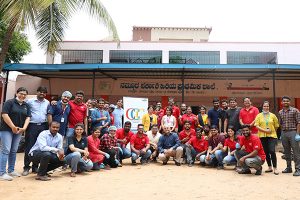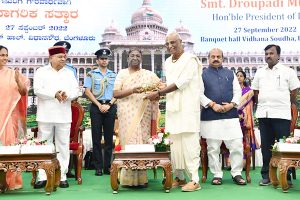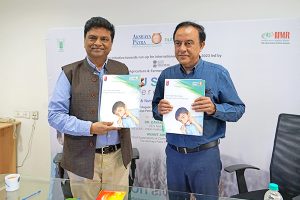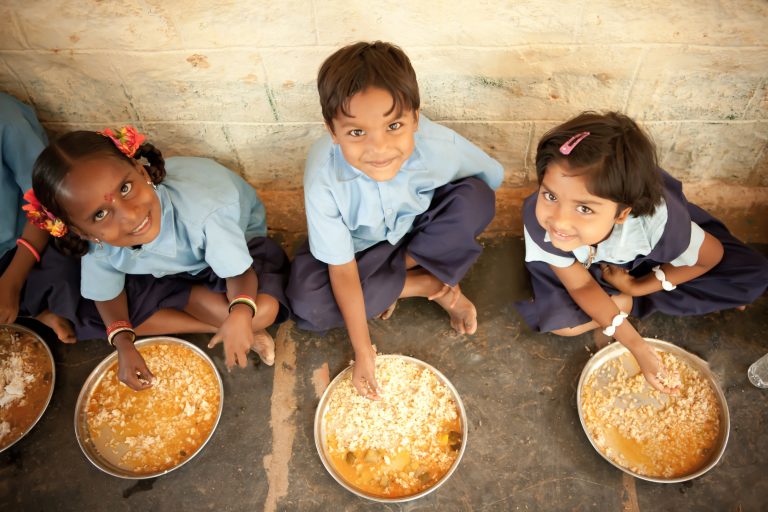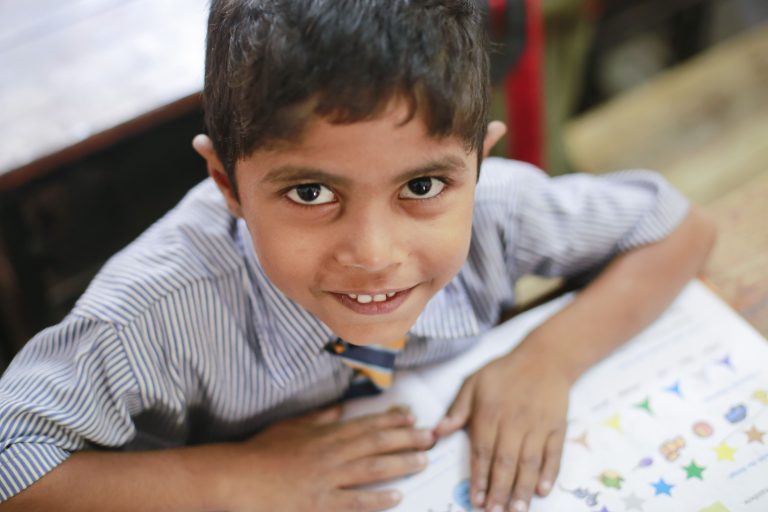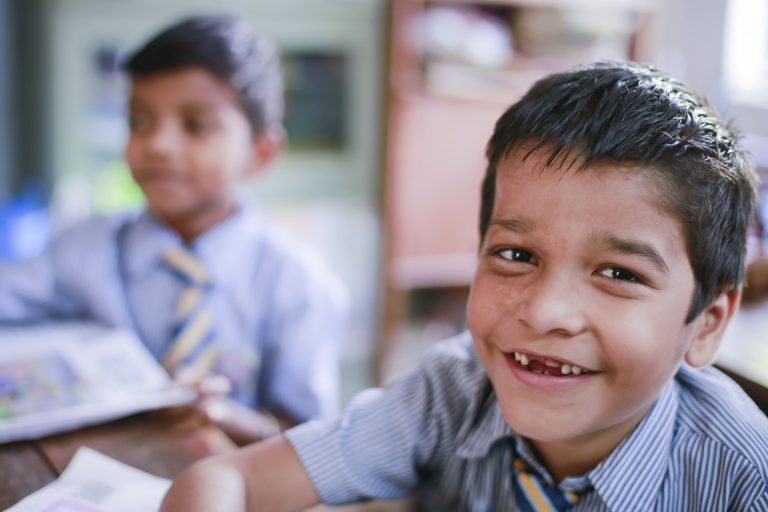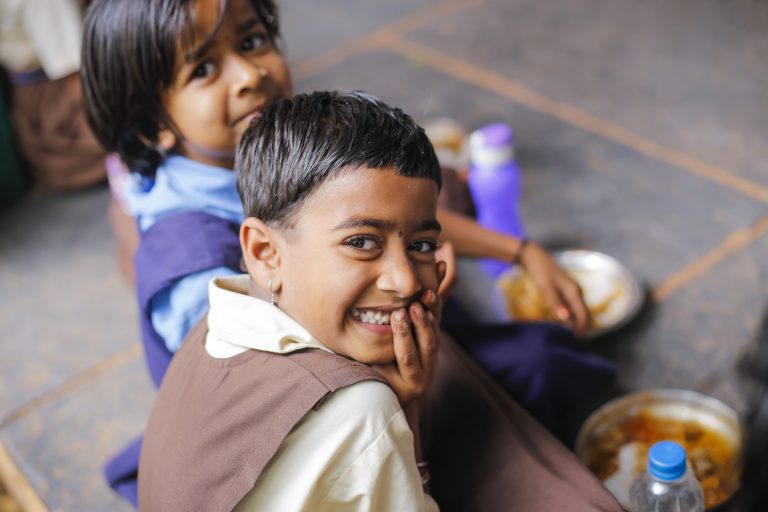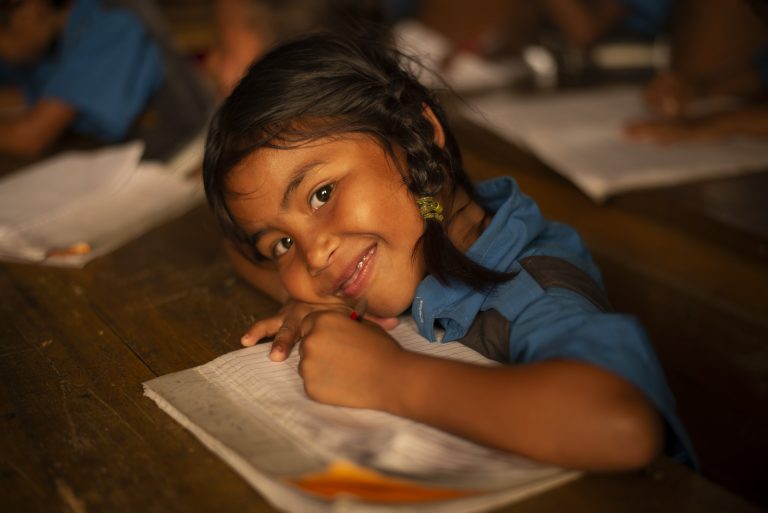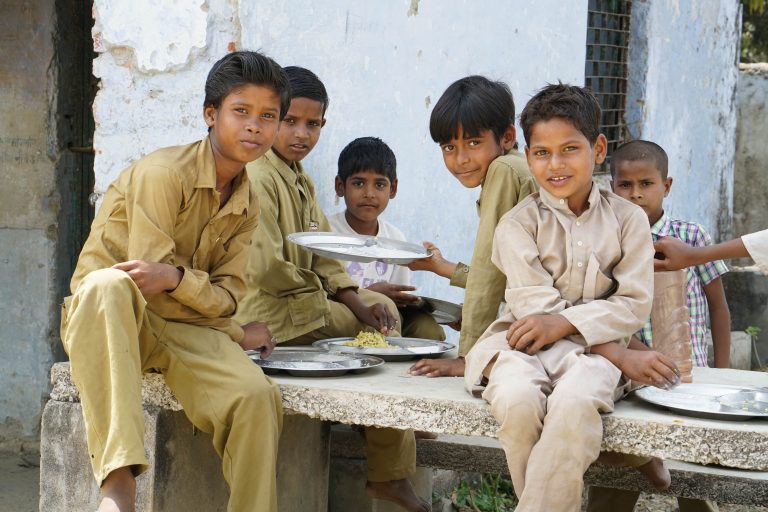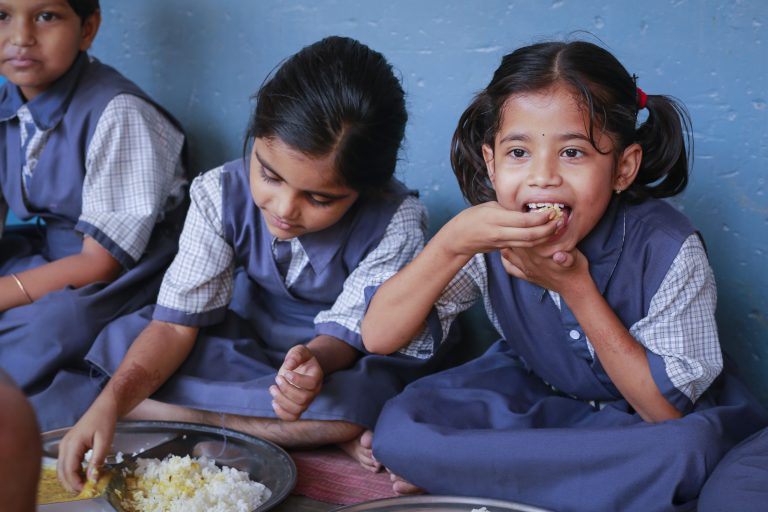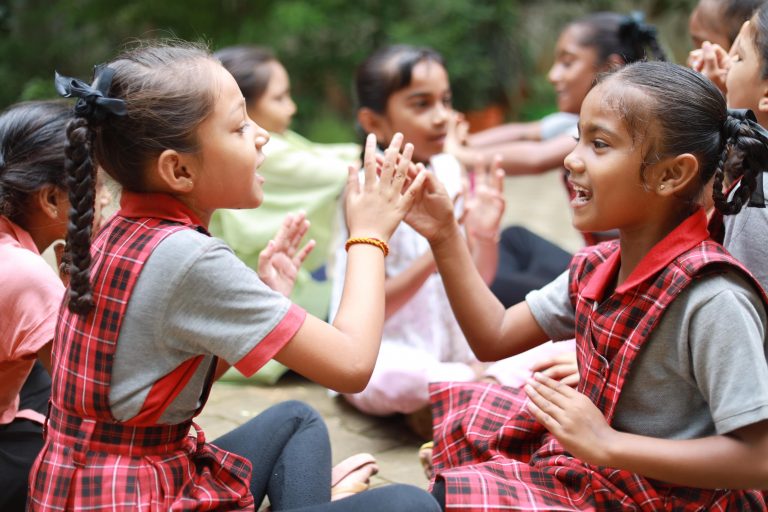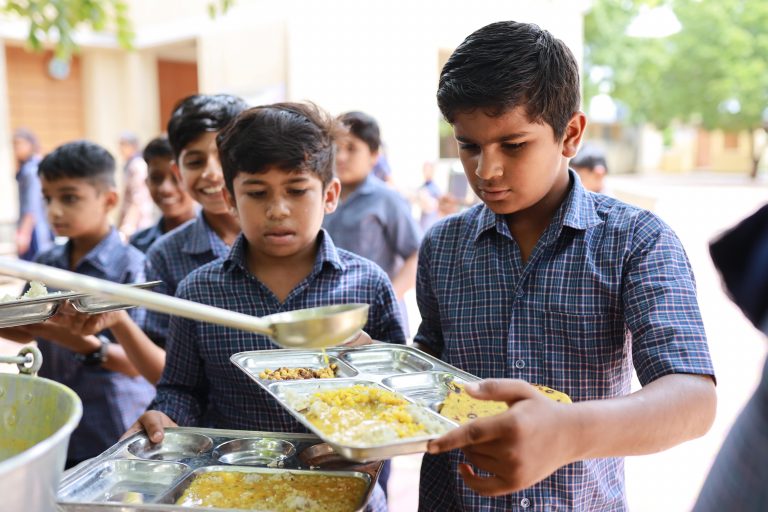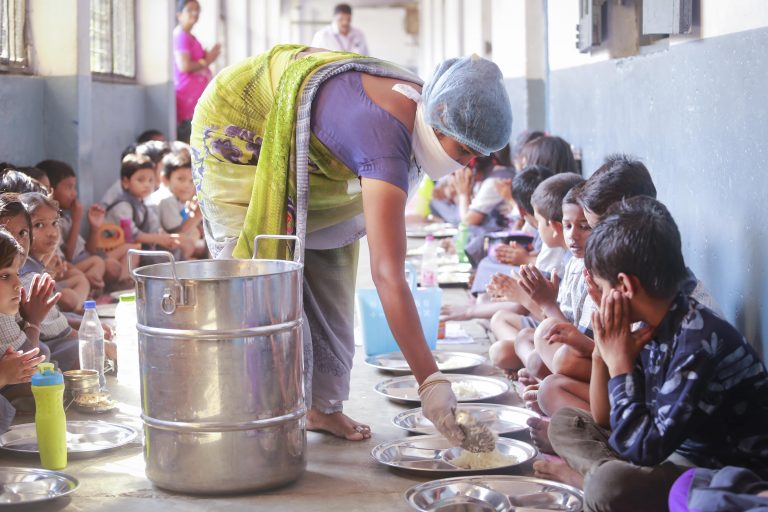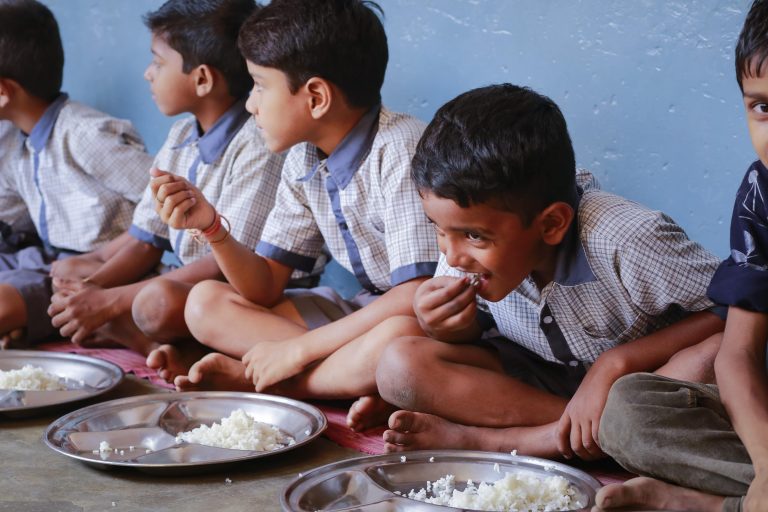Mission Sharing Knowledge interviews The Akshaya Patra Foundation
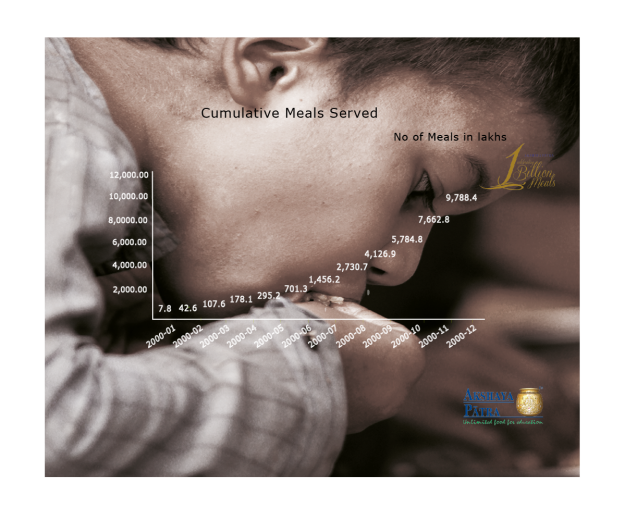
Akshaya Patra is probably the world’s most successful mid-day meal scheme running organisation. In this interview, the organisation shares with us, how they manage such grand scales daily; how the supply chain is taken care of and most importantly how they keep corruption at bay. An exclusive must read.
Mission Sharing Knowledge (MSK): Feeding 1.3 million mouths every day surely must be a challenging task. How and where are these tonnes of vegetable and rice cooked? How do you ensure hygiene levels?
The Akshaya Patra Foundation (APF): It is an incredibly challenging task because quality levels need to be maintained from preparation till the delivery of meals to the children. Each Akshaya Patra centralised kitchen has the capacity to cook between 50,000 to 150,000 meals every day, without compromising on hygiene.
Our industrial-sized kitchens are equipped with custom-built machines to suit our need for quality and quantity. Chopping machines can cut 40 kg of vegetables in 60 seconds. Our roti-making machine churns out 60,000 rotis (Indian flat bread) per hour. The food is cooked in mechanised, steam-heated cauldrons that reduce preparation time.
MSK: What motivated you to start a programme such as the midday meal for children?
APF: When His Divine Grace A.C. Bhaktivedanta Swami Prabhupada saw a group of children fighting with street dogs over scraps of food, he came to a determination that: No one within a ten mile radius of our center should go hungry. It was this compassion that birthed Akshaya Patra.
Trustees T.V. Mohandas Pai and Abhay Jain along with Madhu Pandit Dasa, Chairman of Akshaya Patra sowed the seeds of thought of starting a kitchen at ISKCON, Bangalore where meals would be cooked for underprivileged children in Government schools.
The promise of meals in schools would ensure that children will seek and continue an education, instead of turning to labour.
In June, 2000 our mid-day meal scheme was launched in Bangalore, feeding 1,500 children in five schools. An overwhelming response from schools encouraged us to reach out to many more Government schools in other states. Today we feed over 1.3 million school children across India.
MSK: People must be a very important component of the entire process. Who are the people Akshaya Patra credits it to?
APF: We are thankful to the Central and State Governments from whom we get around 65 per cent of our funds. The generosity of our donors is crucial for carrying out daily activities for providing mid-day meals to school children. We value the constant support of our volunteers, teachers and parents of the children.
An initiative of this magnitude and extent cannot be undertaken and managed without the involvement of many, and so Akshaya Patra is a team that comprises not only its employees, but also its supporters.
MSK: Is there a larger goal you are trying to achieve by feeding children and motivating them to study?
APF: According to World Bank and UNICEF statistics, over 8 million underprivileged children in India are out of school and have to resort to child labor to earn enough for a single meal in a day.
A mid-day meal is more than just an incentive for children to attain an education. It is a promise of progress, one that has the potential to rid India of malnourishment, illiteracy and poverty. India’s children are the future and education will empower them to be self-sufficient, successful and contribute to society.
By feeding our future we ensure a brighter tomorrow not just for them, but also for the country at large.
MSK: What is the core feature of your mid-day meal programme?
APF: A combination of quality and adaptability to manage constantly growing needs is the core feature of our programme.
Our large-scale operations that owe its success to constant technological innovation, allow us to function efficiently as the world’s largest school-lunch programme.
Kitchen processes begin at about 2 a.m. and continue throughout the night till the food is ready to be dispatched in custom-made delivery vans at 8 a.m. Meals are promptly delivered to each school by lunchtime. It takes a whole lot of determination and dedication to carry out this glitch-free process every day.
MSK: How easy or difficult is it for you to raise money such a grand endeavor?
APF: We rely on the support of not only the Government, but also our donors. We use the resources available to us in the most efficient ways possible, yet an ambitious mission to feed five million children by 2020 will always require more assistance.
Effective results and absolute transparency of the Foundation makes donors feels secure about their contribution and encourages more support. We hope that our work will always be appreciated and we can continue raising funds to help more children.
MSK: How do you manage such a huge scale supply chain and also keep corruption out of the entire system?
APF: Technology is our greatest resource. Without our state-of-the-art kitchen facilities, efficient management of our extensive operations is impossible. Customisation and innovation continuously improves our process to cater to the growing need of nourishment.
Akshaya Patra’s 4000 employees have chosen a way of life to provide care for underprivileged children. The Foundation holds absolute transparency as one of its most important principles, complying with the International Financial Reporting Standards (IFRS) and the Indian Accounting Standards issued by the Institute of Chartered accountants of India.
MSK: What can be done to avoid mid-day meal disasters? Please share some tips.
APF: To run a successful mid-day meal programme it is vital to realise the complexity of it. It is different from cooking meals for a family; it’s not a job for a single individual. The workforce employed to prepare meals must be competent and trained to maintain sanitation. Teachers have to attend to their pupils and manage their academic duties; they must not be overburdened with the task of cooking meals as well. The funds allocated to the mid-day meal programme need to be used judiciously for employment of suitable workers, training, infrastructure and so on.
Preparing food for so many children requires attention and precaution. Hygienic conditions for storage and preparation, sanitary area for operation, monitoring and quality checks are mandatory factors that guarantee an effective programme. Food safety trainers, auditors and supervisors need to play an active role in the process. Food safety cannot be taken lightly, especially when meals are prepared for children.
MSK: What kind of an impact do you think your meal programme has on the society at large?
APF: A satisfied appetite provides an ability to focus on academics and take a keen interest in learning. Our programme has increased school enrollment, especially female enrollment, and encourages children to continue their education. Combating illiteracy, poverty and child labour can be achieved with mid-day meals.
The success of the programme and other efforts like it will help reach out to those underprivileged children who continue to miss out on a healthy and happy childhood.
Source: https://missionsharingknowledge.wordpress.com/2013/08/15/akshaya-patra-foundation-a-case-study-for-all-mid-day-meal-schemes-msk-exclusive/
